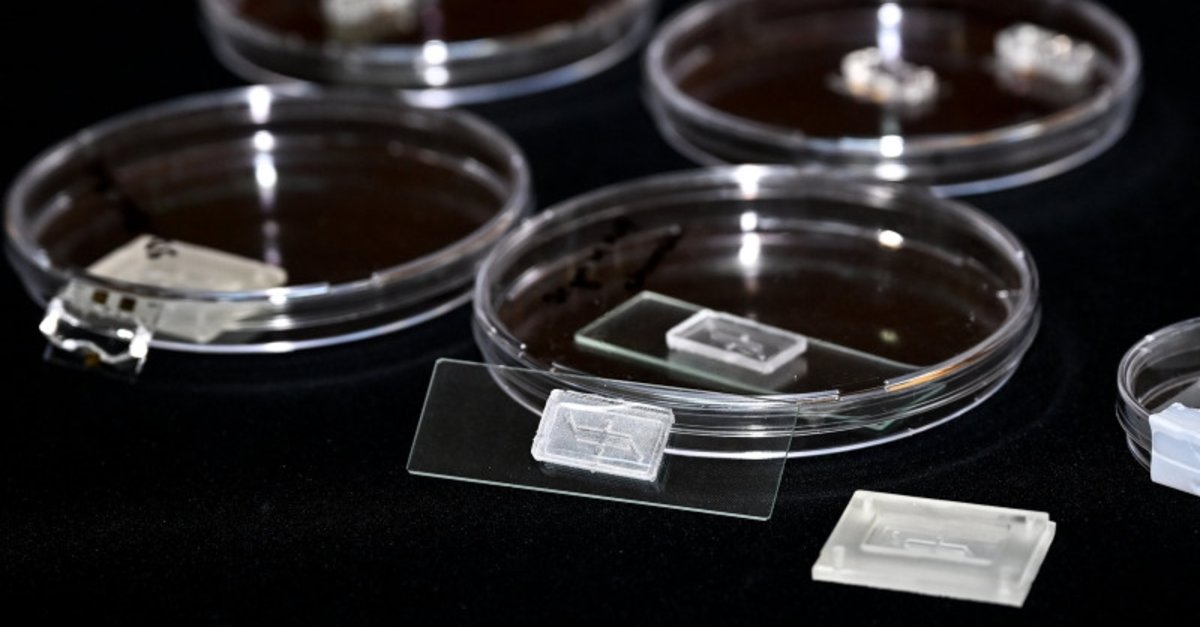Tue 20 August 2024:
Professor Haluk Külah, a member of the Board of Directors at the METU Microelectromechanical Systems (MEMS) Center and a faculty member of the Electrical and Electronics Engineering Department, provided insights into the scientific studies conducted under the OrChESTRA Project. Külah mentioned that they aim to become a regional center of excellence in the field of organ-on-chip systems, collaborating with IMEC from Belgium, Freiburg University from Germany, and Eindhoven University of Technology from the Netherlands.
By collaborating, the four institutions aim to train researchers in organ-on-chip systems. Külah stated, “The project includes collaborations and opportunities for our researchers to participate in studies in different countries, or for experienced experts there to work at the METU MEMS Center for short periods. We have benefited a lot from this project that has been ongoing for the last 1.5 years. It has significant contributions to the field.”
Reducing Animal Testing
Külah emphasized the importance of the infrastructure of the METU MEMS Center and its research competence in the field of biomedical technologies, saying, “The aim of organ-on-chip systems is to reduce animal testing. We may still have a long way to go, but eventually, we hope to conduct various tests solely on a chip without using laboratory animals.”
__________________________________________________________________________

https://whatsapp.com/channel/0029VaAtNxX8fewmiFmN7N22
__________________________________________________________________________
Intestine-on-a-chip
Külah further explained, “The study involves creating a model of the intestine on a chip. By creating this model, we aim to test drugs effectively in an environment outside the body. It is also possible to model the functions of different organs on a chip. This way, we will facilitate the process of drug testing, and also eliminate the need to use laboratory animals.”
Developing a Globally Needed System
Associate Professor Ender Yıldırım, a faculty member of the Mechanical Engineering Department and a researcher at the METU MEMS Center, stated that they are working on developing a globally needed system to integrate sensors with organ-on-chip systems. Yıldırım explained, “Organ-on-chip systems are usually used for drug development. We aim to test potential drug molecules on organ-on-chip systems without animal testing. We know that some international pharmaceutical companies have already started using these systems.”
Simulating Organ Functions
Yıldırım said, “This technology involves growing cells inside the chip to simulate organ functions. Then, the chip is monitored to observe the cell responses to the administered drug, and how the organ functions are affected by it.”
He added, “We aim to integrate this model with sensors to get real-time data, paving the way for more precise and accurate drug development.”
When asked about the potential impact of this project in the field, Yıldırım replied, “There might be other ways to utilize this technology, but our goal is to model the intestine. We need this, because to accurately measure the efficacy of a drug absorbed through the intestines, we need to analyze the way it is absorbed. By placing sensors in the microchannels that model both sides of the intestinal wall, we aim to measure the absorption of the applied drug in real-time. We have produced prototypes and started our tests.”
Becoming a Center of Excellence
Regarding the importance of the project, Yıldırım said, “The project aims to design drugs more accurately and potentially reduce or even eliminate the use of laboratory animals in the testing phase in the long term.” He mentioned that studies have already begun in Europe in this regard, and concluded, “Through our work in the OrChESTRA project, the METU MEMS Center has joined the European Organ-on-Chip Society (EUROoCS), which includes researchers working in this field in Europe. We aim to follow international developments and contribute to progress in Türkiye in this field. We aspire to serve as a center of excellence in organ-on-chip research and support other researchers in this field in Türkiye.”
SOURCE: A NEWS
______________________________________________________________
FOLLOW INDEPENDENT PRESS:
WhatsApp CHANNEL
https://whatsapp.com/channel/0029VaAtNxX8fewmiFmN7N22
![]()
TWITTER (CLICK HERE)
https://twitter.com/IpIndependent
FACEBOOK (CLICK HERE)
https://web.facebook.com/ipindependent
YOUTUBE (CLICK HERE)
https://www.youtube.com/@ipindependent
Think your friends would be interested? Share this story!













